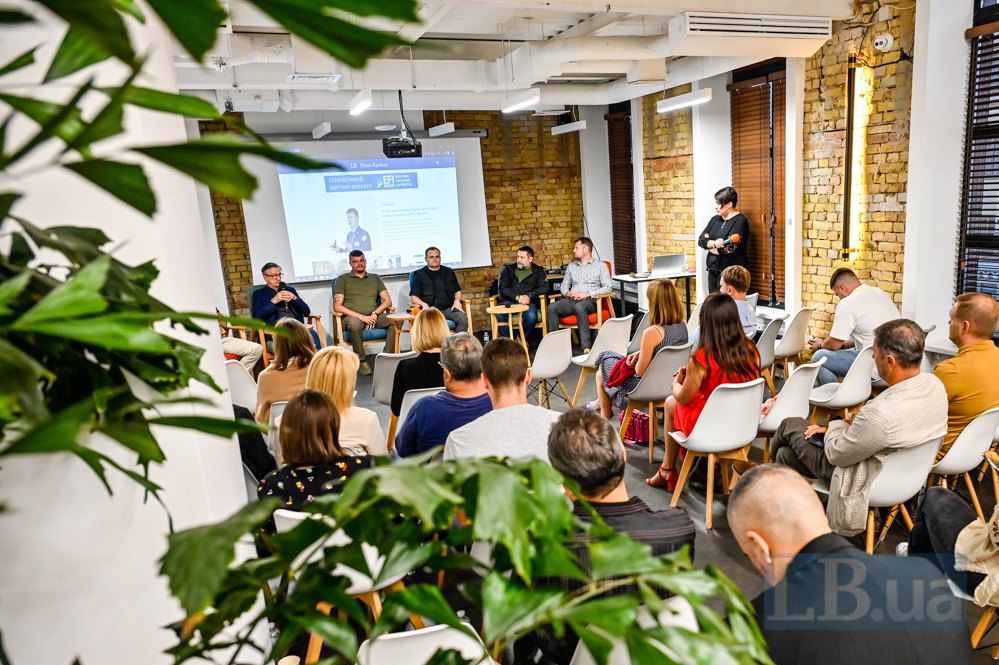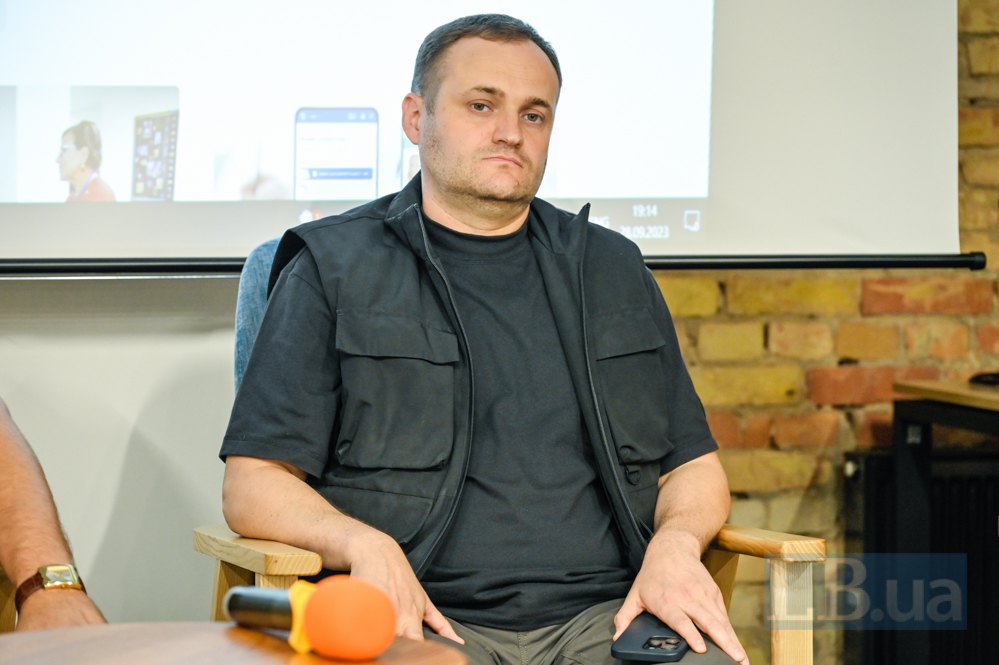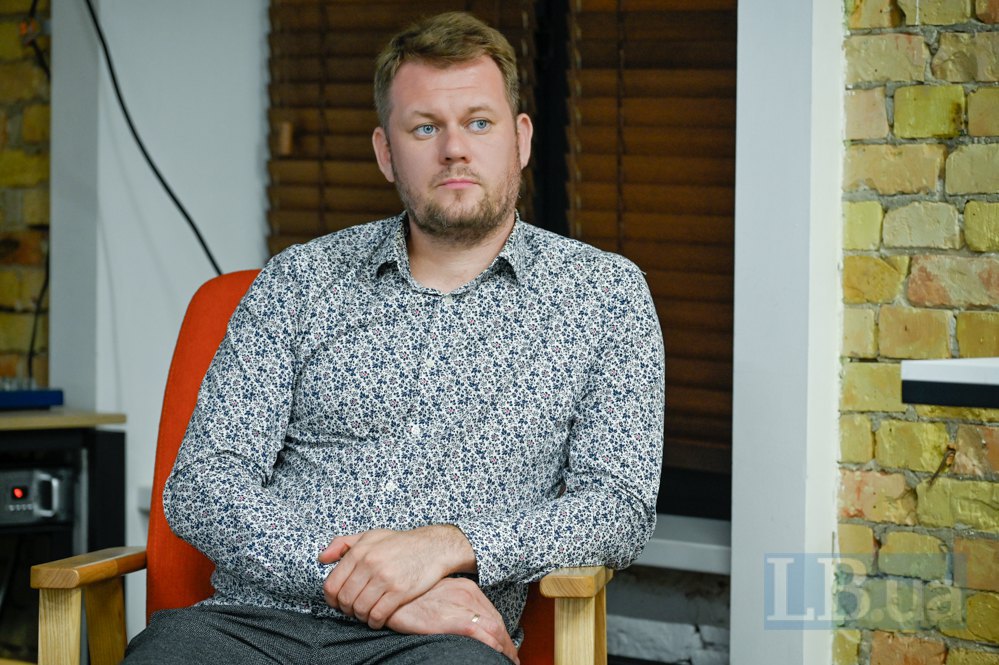
"The law should provide answers to all sensitive questions"
We have to de-occupy the territories with legislation ready for this, says Oleksiy Kuleba, Deputy Head of the Presidential Office. According to him, the relevant ministry and lawmakers have started working on this. However, the adoption of this legislation will be preceded by discussions and debates due to the large number of aspects.
"Believe me, there have been very different cases when, even during the 40 days of the temporary occupation of Kyiv Region, people showed themselves in different ways, although 99% are absolutely patriotic citizens of Ukraine," says Kulebs. He adds that society, in his opinion, is open and ready for even the most heated discussions.
"We are fundamentally different from the terrorist country in that we discuss this together, not being afraid to express our opinions. But we are well aware that the answer to all questions is the law. We need a legislative framework... There must be legislation that will regulate many very different and sensitive issues, narratives imposed over the past 30 years by a terrorist neighbour," says Kuleba.

"After justice is served, there must be forgiveness"
EFI Group CEO Ihor Liski also believes that the law should be the first to return to the deoccupied territories.
"The law is not punitive, but fair. Logically, all those who tortured Ukrainians, who abused and killed people, should be punished fairly. The law restores faith in the state and faith in the future," Liski said. In addition, in his opinion, the law should also answer the question of what to do with those who became hostages of the occupation and had no other choice. And this inevitably brings the question of forgiveness, the businessman believes.
"When justice is served, we must move into the future through forgiveness. This is a very difficult issue, but we must remember that we are a European civilisation, and mercy is an inherent value," said Liski.

"Perhaps it is time to raise the issue of reviewing Ukrainian citizenship for people under occupation?"
Justice is now a higher priority for people than reconstruction and economic revival, says Petro Andryushchenko, an adviser to the mayor of Mariupol.
"We are in touch with evacuated people, with people under occupation and understand their needs. The top issue is the issue of justice. People want to know how we will live when we return to those who are in the occupied city today.
Is it a betrayal or help when our doctors treat the occupiers? Will our entrepreneurs who try to sit on two chairs be punished or not? We do not hear these questions, but they are important. Without answering them, there will be no de-occupation," Andryushchenko said.
He suggests that for the territories that have been under occupation since 2014, the issue of justice must be put on the table.
"Those who have lived under occupation for nine years, are they really citizens of Ukraine? I'll tell you: those who have lived under occupation in Mariupol for almost a year and a half and had average views on the future are already saying that things are not so bad. In another six months, they will say otherwise. Another six months, and they will say something else. So maybe it's time to raise the question of reviewing Ukrainian citizenship for people under occupation? Believe me, this will not be a problem for the pro-Ukrainian population. Not at all. On the contrary. Maybe we should really discuss what the responsibility will be for people who deliberately return to the occupation or earn money there?" Andryushchenko said.

He is convinced that it is time for such questions and answers. And the opinion of our partners should not be decisive in this.
"We have been constantly communicating with our partners – the French and Germans – for eight years. They ask us about the de-occupation of Donetsk, but they don't like to answer questions concerning themselves. What happened to Germany after the Berlin Wall came down? What happened to France in the first year of de-occupation after World War Two? When they try to impose any rules on us, they forget what they did themselves," Andryushchenko says. According to him, people are ready to return (to the de-occupied territories - Ed.) and rebuild their cities, but they need answers to these questions.
Ed.) and build, but only if they have answers to these questions.
"If there is no law, another 'law' will work"
The former head of the Luhansk Regional Military Administration, Serhiy Hayday, also believes that it is imperative to have a law that would regulate the form of punishment for those who collaborated with the enemy in the occupied territories.
"If there is no law, there will be another 'law'. 100%. In 2021, we built the Bell of Remembrance, but in the press release we wrote Bell of Reconciliation – it was almost demolished. It was just horrible. And now our teachers who evacuated from the occupied Luhansk Region, in addition to teaching children, weave camouflage nets in the evenings. And they know that their colleagues there (in the temporarily occupied territories - ed. note) work in schools – they will tear them apart when they return. That's why the law comes first," Hayday says.
"There is a law on collaboration, it can be expanded"
Artem Lysohor, the current head of the Luhansk Regional Military Administration, believes that the degree of responsibility for collaborating with the enemy can be determined by adjusting the current legislation.
"We have a law on collaborative activity. It can be expanded to include a provision on forgiveness. But everyone who collaborated, fulfilled the requirements or facilitated the fulfilment of the requirements of the Russian terrorist state or the occupying authorities must be held accountable," Lysohor insists.
However, he adds, it should be taken into account that there are people under occupation who could not leave, such as politicians, administrative officials, public figures, activists, ATO members, etc. Also, sometimes people have no choice but to obtain a Russian passport. For example, schoolchildren.

"Our children, 11th grade students, had to get these passports. But excuse me, if you got a Russian passport to become a 'deputy', what kind of excuses can you have? You came to enforce the 'Russian world, you were waiting for it – you will be responsible for it. Everything is very simple," Lysohor concluded.
"Transitional justice provides all the answers"
Transitional justice provides answers to all the questions that arise during the deoccupation of the territories, says businessman and former head of the Donetsk Regional State Administration Serhiy Taruta. In his opinion, this experience can be used by Ukraine. However, the forced passportisation by Russia will require a separate legislative regulation, as the world has never had such an experience, the businessman says.
"Transitional justice covers everything, there is no need to invent anything. There are very simple answers to all questions. The only thing that is missing is the issue of passports. There has never been a case in the world where people were forced to take passports. This will have to be addressed separately. Legislatively," Taruta said.

"There will be no problem with whether one should be tried – serious criminals will escape"
However, Denys Kazanskyy, a blogger, political commentator and journalist, author of books on Donbas, and Ukraine's representative in the Trilateral Contact Group for the peaceful settlement of the situation in eastern Ukraine, believes that the actual problem will be to punish not those who committed crimes, but small officials. In addition, the issuance of Russian passports will require close scrutiny.
"I think that the question of how we can all live together will be resolved by itself. Some 99.9% of those who participated in serious war crimes will flee. We have seen this in the already de-occupied territories: active members of occupying administrations, various gauleiters or those who actively cooperated with the gauleiters, with the occupiers, people who served in the [Russia-installed] police, who served the Russian troops in one form or another, mostly all fled. There were some who remained, those who ran some small errands and hoped that they would not be remembered, that no one would turn them in, that no one would notice.

When we hear that someone has been detained for collaborating with the occupiers, these are mostly small functionaries who, for example, during these so-called referendums, pseudo-referendums, participated in some commissions, carried ballot boxes around the households. It's nothing. For the most part, people who really committed some crimes will simply leave for Russia, they will not stay. Therefore, the question of whether one should be tried will not be an acute issue for us, this problem will resolve on its own," Kazanskyy suggested.
And we will have to discuss people who did not commit serious crimes but received Russian documents or worked in municipal structures during the occupation, he says.
"I know, for example, that conditions are being created there (in the occupied territories - ed. note) in which people simply cannot avoid getting passports. I posted a video of a Russian-appointed gauleiter saying that if you don't have a Russian passport, you won't get insulin, for example. Those who do not have a Russian passport will not receive food as humanitarian aid. That is, they will de facto starve to death. In these situations, not getting a Russian passport means death. Now many people are really forced to get Russian passports, and this will also need to be dealt with – just to see who received them under duress, out of despair, and who received them on their own initiative," Kazanskyy concluded.








